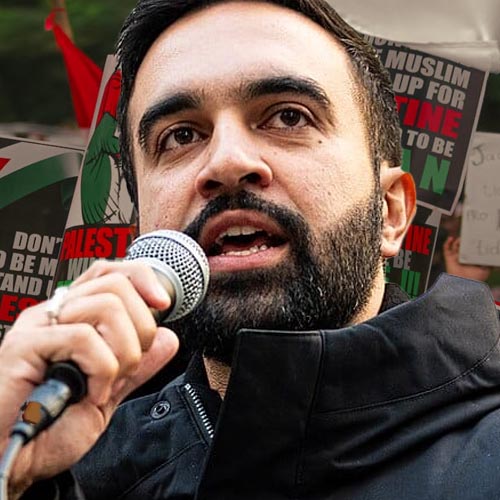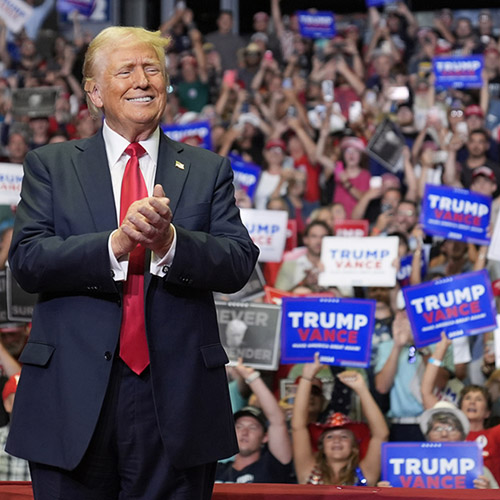HOW MAMDANI'S VICTORY SIGNAL A GAZA RECKONING FOR 2026
HOW MAMDANI'S VICTORY SIGNAL A GAZA RECKONING FOR 2026

When Zohran Mamdani was declared as victorious as New York City's next mayor on November 4, 2025, defeating former Governor Andrew Cuomo, he didn't just topple a political dynasty. He may have provided the clearest signal yet of how the war in Gaza will reverberate through America's 2026 midterm elections—and potentially reshape the Democratic Party landscape in the process.
The 34-year-old democratic socialist's stunning triumph represents more than a local upset. Mamdani became the first New York mayoral candidate to win over a million votes since the 1960s, outperforming political legends like Rudy Giuliani and Michael Bloomberg in raw vote totals. This electoral achievement came despite—or perhaps because of—his uncompromising stance on Gaza, which made him one of America's most prominent critics of Israel's military actions in Palestinian territories.
For Democrats nationally, Mamdani's victory presents both a warning and an opportunity. The party's established leadership largely kept its distance from the Queens assemblyman. Senate Minority Leader Chuck Schumer withheld his endorsement, while Representative Hakeem Jeffries offered his lukewarm support only on the final day before early voting when Mamdani's victory appeared inevitable. Their hesitancy reflects the uncomfortable reality that Mamdani's success exposes: a growing chasm between Democratic Party elites and their increasingly progressive base, particularly on foreign policy.
The Gaza Factor
Mamdani has specifically declined to say he believes Israel has the right to exist as a “Jewish” state, has characterized Israel's actions in Gaza as a "genocide," and has iterated that he would arrest Israeli Prime Minister Benjamin Netanyahu if he visits New York. These positions would have been political suicide for most candidates in a city home to the largest Jewish population outside Israel. Yet Mamdani won.
How? By building an unlikely coalition that transcended traditional political boundaries. Progressive Jewish organizations like Bend the Arc, Jewish Voice for Peace Action, and Jews for Racial and Economic Justice provided endorsements and canvassing support. Meanwhile, exit polling found that Jewish voters favored Cuomo over Mamdani by 29 points, 60% to 31%, revealing the deep generational and ideological splits within the Jewish community itself.
This fracturing of what was once considered a monolithic voting bloc signals broader changes ahead. While 56% of Jewish Americans say they are emotionally attached to Israel, that number falls to 36% among those aged 18 to 34, according to Washington Post polling. Younger voters, who formed the backbone of Mamdani's volunteer army, have proven willing to challenge long-standing foreign policy orthodoxies.
Economic Populism Meets Foreign Policy
Crucially, Mamdani didn't win on Gaza alone. He centered his campaign on bread-and-butter issues: freezing rent on rent-stabilized apartments, establishing free bus service, providing universal childcare, and creating city-run grocery stores to combat high food costs. CBS News exit polling found that cost of living was voters' top issue, ahead of crime, with three in four New York City voters saying the cost of housing is a major problem.
This combination—progressive economic populism paired with unflinching criticism of Israeli policy—may become the template for insurgent Democratic candidates in 2026. Ashik Siddique, a national co-chair of the Democratic Socialists of America, said "This election proves that democratic socialist ideas are very popular" and expressed hope it demonstrates "a very powerful way forward."
Senator Ruben Gallego of Arizona, who shares some political consultants with Mamdani, observed the broader lesson: candidates who speak directly to community needs will find success. While acknowledging policy differences, Gallego noted that both he and Mamdani succeeded by addressing voters' everyday concerns about cost of living and their future prospects.
The Trump Connection
President Trump repeatedly said he would limit federal funds to New York City if Mamdani was elected, and on Election Eve endorsed Cuomo in a Truth Social post. Trump's intervention, rather than damaging Mamdani, may have reinforced his outsider credentials and energized his base—a dynamic that could repeat itself in congressional races where the president attempts to influence outcomes.
More than 2 million voters cast ballots in the 2025 election, the biggest turnout for a mayor's race since 1969, suggesting that Mamdani's candidacy mobilized voters who typically sit out local elections. This expanded electorate, if replicated in 2026, could fundamentally alter the Democratic primary landscape.
What This Means for 2026
As both parties look toward the midterm elections, several patterns from Mamdani's victory seem likely to influence congressional and gubernatorial races:
Youth mobilization around Gaza: Younger voters have demonstrated they will turn out for candidates who take strong positions on Palestinian rights, even when those positions alienate party establishment figures and older voters.
The limits of money: Mamdani won despite being vastly outspent by Cuomo, who was backed by a group of billionaires. His grassroots volunteer operation—which knocked on doors and made personal appeals to voters—proved more effective than Cuomo's well-funded advertising blitz.
Generational political realignment: The fault lines within the Jewish community mirror broader generational divides across Democratic constituencies. Traditional assumptions about which issues motivate which voting blocs may no longer hold.
The power of authenticity: In debates, when Democratic candidates rushed to declare that Israel would be the first foreign destination they would visit if elected, Mamdani was emphatic that he was running to be mayor of New York, not an envoy of foreign policy. His refusal to pander was initially portrayed as disqualifying by pundits, yet voters rewarded his honesty.
Challenges Ahead
Whether political tactics work to change or brand the Democratic Party largely depends on whether Mamdani is as effective a mayor as he was a candidate. If his administration struggles to deliver on ambitious campaign promises, it could reinforce arguments from party moderates that progressive insurgents are better at campaigning than governing.
Additionally, while Mamdani's coalition proved sufficient in New York City's unique political environment, replicating it in suburban swing districts or conservative-leaning states presents different challenges. The dynamics that allowed a democratic socialist to win in America's largest city may not translate directly to House races in Pennsylvania or Senate contests in Montana.
The Broader Implications
For Democratic strategists gaming out 2026, Mamdani's victory suggests that Gaza is not merely a foreign policy issue but has become intertwined with questions of party identity, generational change, and economic justice. Candidates who can authentically connect local economic concerns with principled foreign policy positions—rather than treating these as separate spheres—may find unexpectedly receptive audiences.
The Democratic establishment's tepid response to Mamdani's campaign—and his success despite their distance—also suggests the limits of party gate-keeping in an era of social media organizing and grassroots fundraising. Future insurgent candidates may look to his playbook: build volunteer networks, speak directly to economic anxieties, maintain moral clarity on contentious issues, and trust voters to reward authenticity over calculation.
As America moves toward the 2026 midterms, operatives and political leaders on the progressive left and MAGA right are looking to nationalize Mamdani's narrative, each hoping to make him either a model or a cautionary tale. What seems clear is that the war in Gaza—and how candidates address it—has moved from the margins to the center of Democratic Party politics. Mamdani's victory ensures it will remain there through 2026 and likely beyond.
Related News .
Stay updated with the most important events.





